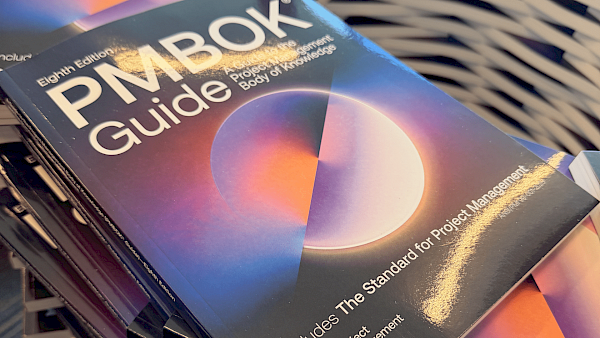Episode transcript The transcript is generated automatically by Podscribe, Sonix, Otter and other electronic transcription services.
Hi everyone, here is Ricardo Vargas, and this is the 5 Minutes Podcast. I just arrived from the PMI Summit 2025 in Phoenix, United States. And without any doubt, the big highlight of the event was the release of the new edition of our professional codex, the PMBoK guide, eighth edition. And today I want to share my first impressions with you. This edition immediately shows how much PMI listened to, listened to the global community. It's clear, more practical, and far more aligned with how projects are truly delivered today. And let me begin with the foundation. This update is one of the most evidence-based in PMI history. PMI collected nearly 48,000 data points worldwide and incorporated two rounds of public feedback to refine the content. One of the biggest early changes is in the mindset section. The 12 principles from the seventh edition have now been streamlined into six focused principles. I'm not saying that PMI selected six out of the 12. No. The six daily incorporate the concepts around the 12 principles, but in a much more focused way. The intent is to keep the sense of good project behavior while reducing overlap and making the guidance easier to apply in day-to-day work. Remember day-to-day work, something that will help you in your projects on a daily basis. And all of this is connected to a very clear central idea. Ideas and the idea of value projects exist to deliver value. Not just output, not just efficiency, but true outcomes that matter to stakeholders. Now let's move into the mechanics where the 8th edition really shines for those who missed the traditional structure of the older PMBOK, especially up to the PMBOK guide sixth edition, PMI reintroduced a familiar backbone. The old process groups return as five project management focus areas: initiating, planning, executing, monitoring and controlling, and closing. And PMI is very explicit in that. These activities happen in every project, not only on predictive projects, but in predictive, Agile, or hybrid projects. Next, the operational structure is built on seven project management performance domains. These domains are a modern evolution of the ten knowledge areas from the PMBOK sixth edition, but they are now much more integrated, simpler, and easier to navigate. Remember the ten knowledge areas: integration, scope, schedule, cost, quality, resources, communication, risk, procurement, and stakeholders. These areas became. Governance. Scope. Schedule. Finance. Stakeholders, resources, and risks. A major update that many practitioners will celebrate is the comeback of the technical processes. The eighth edition brings 40 updated processes with the inputs, tools, and techniques, and outputs or ITTOS embedded directly in each domain. So 40 processes inside seven Performance domains and five focus areas. So focus areas initiating planning, executing, monitoring and controlling, and closing and performance domains, governance, scope, schedule, finance, stakeholder resources, and risks. And all these 40 processes are distributed into these two groups. But this is not prescriptive. You are not required to do so, but they are practical and technical, solid guidance, giving you real guidance without forcing a single way of working. And one important thing that I saw is the concept of tailoring. Tailoring is stronger than ever. Instead of presenting tailoring as a general recommendation, as in previous uh, PMBoK editions, PMI decided to integrate it inside each domain with concrete examples showing how to adjust your approach, depending on context. This makes the guide much more actionable and adaptable across industries. In the end, the PMBoK guide, eighth edition, blends the why with the principles and value orientation with the how of the process, tools, and techniques. It feels complete, balanced, and much closer to real project practice. And before we close, one super important note: this podcast is not sponsored, and I do not speak on behalf of PMI. Okay, despite having many, many years connected to PMI, these reflections are entirely my own impressions. Okay, and I will publish several other things about the PMBoK in the upcoming days and weeks. And I hope you enjoy this episode. This first episode, in this first touch on this new guide, and see you next week with another 5 Minutes Podcast.

